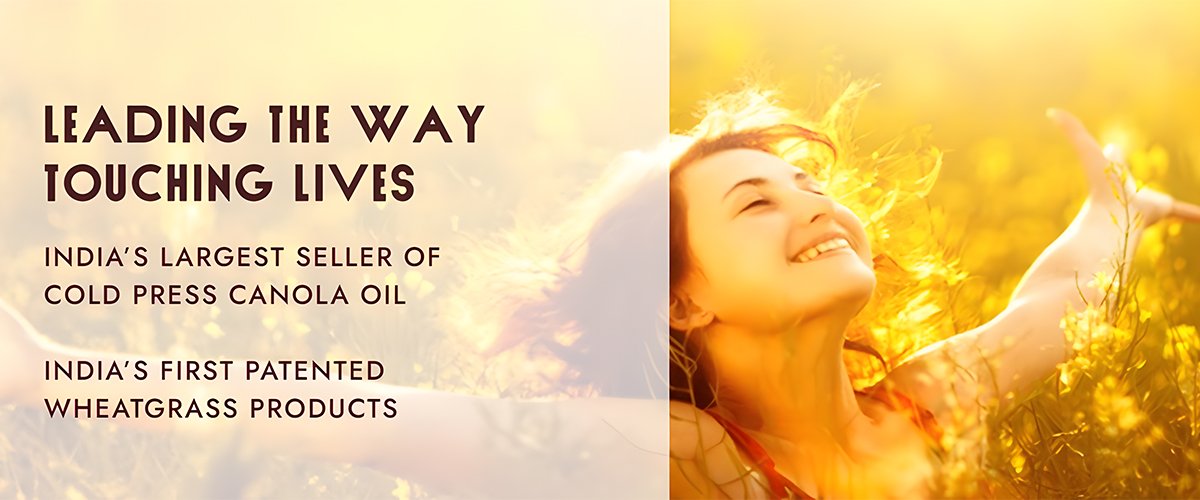India’s per capita edible oil consumption has soared from 8.2 kilograms in 2001 to 23.5 kilograms today—almost tripling over two decades and far exceeding the Indian Council of Medical Research’s recommended fat intake for a healthy diet.
Oil on Your Plate – How Much Is Safe?
In 2001, the per capita consumption of cooking oil was estimated to be around 8.2 kilograms. But now, that number has increased to 23.5 kilograms per person every year. In the last two decades, the amount of cooking oil people use has nearly tripled. This could be due to changes in diets, more processed foods, and increased oil use in cooking.
The Indian Council of Medical Research (ICMR) in its 2024 dietary guidelines recommends fat intake per day to be 27 grams in order to consume 2000 kcal. The actual edible oil consumption in India is way beyond the recommended amount, which poses a great health threat, especially to heart health.
Not All Fats Are Equal – WHO’s Recommendations for a Healthier Diet.
The World Health Organization (WHO) emphasizes that for good health, it’s not just about how much fat we eat, but also the type of fat. They recommend that fat should make up no more than 30% of the total energy (calories) we consume each day. This means if you’re eating 2,000 calories a day, no more than 600 of those calories should come from fat.
The WHO also recommends replacing saturated and trans-fatty acids in the diet with healthy fats like monounsaturated fatty acids and polyunsaturated fatty acids from plants and other healthy sources.
There is a way to health.
The good news is that now you can include these two healthy fats – monounsaturated fatty acids (MUFA) and polyunsaturated fatty acids (PUFA), in your daily diet. In India, there are nutrient-rich, cold-pressed cooking oils that are rich in unsaturated fats and are free from chemical processing, which means they retain their nutritional value. One of the popular healthy cooking oils in India in the cold-extraction segment is the Jivo Cold-Pressed Canola Oil, which is expected to rank as one of the best cooking oils in India.
Which one to go for?
If you are concerned about your health, you need to be cautious about both quality and quantity – the type of cooking oil you are using and how much you are consuming in a day. You know about the daily consumption, i.e., around 27 grams per day as recommended by the ICMR, but which cooking oil is the best for health, you still need to figure out.
When choosing cooking oils, it’s important to look out for a few key things to make sure you’re making the healthiest choice and buying the best cooking oils in India. Here are the two basic health checks:
The healthy oil extraction method you need to look for
There are various methods of extracting cooking oils, like cold-pressing, solvent, and chemical refining methods. Oils processed using high-heat and chemical refining methods lose nutritional value due to nutrient depletion during production. On the other hand, cold-pressing holds nutrients in the oil as this process is natural and does not involve chemicals or high heat. So, next time, if you are buying cooking oil, look out for the label that reads ‘cold-pressed’ cooking oil.
| Method | Nutrient Retention | Chemical Use |
| Cold-Pressed | High | None |
| Rotary + Refined | Low | High |
| Solvent | Very Low | High |
| Expeller-pressed | Moderate | None |
Look out for these healthy fats.
Check out the ingredient section of the cooking oil, which mentions the fat content. Look out for unsaturated fats – monounsaturated (MUFA) and polyunsaturated (PUFA) fats. If they are present and are more than saturated fats, then the cooking oil passes the second criterion.
| Component | Ideal Range | Examples (Composition) |
| Saturated Fat | <35% of total fat | Canola (7%), olive (15%), almond (10%) |
| MUFA | 50–80% | Olive (73–78%), avocado (65–70%) |
| PUFA | 10–35% | Canola (35%), walnut (67%) |
| Omega-6:omega-3 | ≤5:1 (1:1–2:1 being ideal) | Canola (2:1), flaxseed (1:4) |
Why is cooking in Jivo Cold-Pressed Canola Oil healthy?
Jivo cold-pressed canola oil is on its way to be in the league of the top 10 cooking oil brands in India. This health-enriching cooking oil is rich in bioactive compounds and is loaded with distinct health benefits. What’s best in this healthy cooking oil of Jivo is that its extraction method is natural, i.e., mechanical pressing, which guarantees purity.
How healthy is Jivo Cold-Pressed Canola Oil?
Jivo Cold-Pressed Canola Oil benefits in many ways. It is a nutrient-rich, chemical-free oil that is extracted through a natural method and retains natural antioxidants and heart-friendly fats. Jivo’s best cooking oil in India, the cold-pressed canola oil, offers a balanced fatty acid profile ideal for Indian cooking. It ensures a high smoke point and neutral taste.
Health Facts- Nutritional Content in Jivo Cold-Pressed Canola Oil
Heart Health: With 93% unsaturated fats (MUFA + PUFA) and the lowest saturated fat (7%) among vegetable oils, Jivo cold-pressed canola oil helps reduce LDL cholesterol and improves lipid profiles, lowering cardiovascular risks.
Healthy Fats: Contains omega-3 and omega-6 fatty acids in approximately a 1:2 ratio. These healthy fats help support anti-inflammatory responses, aid brain function, and manage blood pressure.
Vitamin Support: Rich in vitamin E and fortified with vitamin A. These vitamins help in improving insulin sensitivity and eye health, and are also beneficial during oxidative stress.
Things to Remember
The benefits of Jivo cold-pressed canola oil are subject to the user’s health condition and clinical history. Results may vary from person to person, depending on consumption consistency, cooking method, and other factors. Make sure you only buy original Jivo cold-pressed canola oil or other Jivo’s best cooking oils in India for maximum health benefits.

